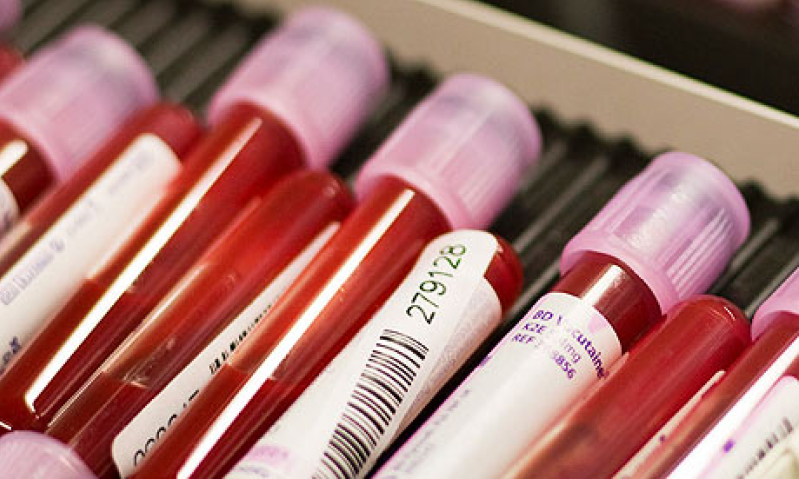
Researchers have developed a new blood test that can screen for every past and present virus that has afflicted a person. The test costs about $25 to run, and results are available in a few days.
According to William Herkewitz of Popular Mechanics, the VirScan test uses a single drop of blood that can scan for past and current battles with thousands of different virus strains. It does the workload of previous tests that required "hundreds of expensive, time-consuming examinations."
"For the first time, instead of testing for viruses one at a time, we're able to perform an inexpensive, full-viral scan," biomedical scientist Ben Larman of John Hopkins University, who helped design the test, said. "The viruses we detect are found with very high specificity and sensitivity.
Herkewitz pointed out that a team of scientists from eight research institutes devised the new test, which was "made possible by advancements in robotics and DNA sequencing technologies." Their work has been published in the journal Science.
Larman stated that VirScan worked by using "donors' antibodies like a fishing lure, [which is] cast into a pond of all known human viruses." Herkewitz elaborated further on the process.
"The machine-automated VirScan starts its scan by mixing a small drop of blood with a library of roughly 100,000 harmless viruses-those that attack only bacteria," Herkewitz wrote. "Each of these viruses has been disguised as a human-attacking virus, such as HIV or the flu-the researchers genetically engineer them to wear one of roughly 100,000 viral masks."
Accoring to Herkewitz, the masks are peptides, or chains of simple molecules, and they attach to the outer shell of a virus. Those peptides help the immune system identify viral invaders.
"VirScan immobilizes the blood sample, and washes away any unrecognized viruses that hadn't been attacked by your antibodies," Herkewitz wrote. "From there, VirScan rips out the DNA from each grappled virus and reads it via DNA sequencing-thus learning which masks set off an immune response. Finally, the scientists put that mask data through a computer algorithm to garner its snapshot of your viral history."
Larman stated that the test can be offered for as low as $25 because the process uses liquid handling robotics. However, he admitted that the test isn't foolproof yet.
"While it can catalog thousands of different virus strains, from HIV to Herpes to Hepatitis C, it won't catch them all," Herkewitz wrote. "That's because while the fishing-lure method excels in finding large viruses, such as the common Epstein-Barr virus, the test has a tendency to let very small viruses (such as Norovirus) slip by. To oversimplify the problem, this is because the smaller viruses are decked out with fewer viral masks."
According to Brady Dennis of the Washington Post, the test's development could lead to early detection of conditions and may one day help explain what triggers certain autoimmune diseases and cancers. Scientists indicated that the average person has been exposed to 10 of the 206 species of known viruses.
"Many of those [people] have probably been infected with many different strains of the same virus," genetics and medicine professor Stephen Elledge of Brigham and Women's Hospital and Harvard Medical School said. "You could be infected with many strains of rhinovirus over the course of your life, for instance, and it would show up as one hit."
Microbiology and immunology professor Vincent Racaniello of Columbia told the Washington Post that VirScan could one day serve as a "helpful" tool in regular medical checkups.
"This is going to be routine, I think," Racaniello said. "It'll be good to know what viruses have been in you."






